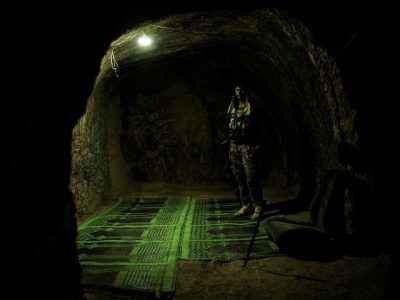
Islamic State reshaping the jihadi landscape of Afghanistan
U.S. and Afghan government officials warned on Monday that the Islamic State is dramatically expanding its footprint in Afghanistan and planning to use it as a base for attacks on Western countries, including the United States.
Analysts told the Associated Press that ISIS has been practicing for action in the West with terrorist attacks in Kabul, stockpiling of weapons, and recruiting locals to learn the battlefield tactics it developed in Syria and Iraq:
A U.S. intelligence official based in Afghanistan told The Associated Press that a recent wave of attacks in the capital, Kabul, is “practice runs” for even bigger attacks in Europe and the United States.
“This group is the most near-term threat to our homelands from Afghanistan,” the official said on condition of anonymity to preserve his operational security. “The IS core mandate is: You will conduct external attacks” in the U.S. and Europe. “That is their goal. It’s just a matter of time,” he said. “It is very scary.”
Bruce Hoffman, director of the Center for Security Studies at Georgetown University, sees Afghanistan as a possible new base for IS now that it has been driven from Iraq and Syria. “ISIS has invested a disproportionate amount of attention and resources in Afghanistan,” he said, pointing to “huge arms stockpiling” in the east.
The Islamic State now has a significant presence in four of the most dangerous provinces of mountainous northern Afghanistan and is developing influence on par with the Afghan government and the Taliban. Its military strength has been bolstered by fighters from Central Asia, Chechnya, India, Bangladesh, and ethnic Uighurs from China.
The U.S. intelligence official quoted by the Associated Press theorized ISIS has designs on encircling and capturing Jalalabad and could be in a position to launch attacks on the U.S. or Europe within a year. At least eight terrorism arrests in the United States have been linked to ISIS in Afghanistan. The terrorist group is said to be aggressively recruiting well-educated Afghans as overseas operatives.
“The Taliban and IS are sharply divided over ideology and tactics, with the Taliban largely confining their attacks to government targets and Afghan and international security forces. The Taliban and IS have fought each other on a number of occasions, and the Taliban are still the larger and more imposing force,” the AP noted.
The threat is grave enough to make Western and Russian analysts consider using the Taliban as a weapon to blunt the spread of ISIS. Unfortunately, there is also a chance more Taliban will defect and join ISIS as peace negotiations between the Taliban and the Kabul government proceed.
The Russians are even more alarmed about the growing strength of ISIS in Afghanistan. Russia’s FSB security service warned in late May that ISIS has some 5,000 militants in northern Afghanistan, over twice as many as the U.S. military estimated last year, and many of them are battle-hardened veterans of the Syrian civil war.
U.S. military planners believe ISIS in Afghanistan lost many of its fighters and top officers to American airstrikes, beginning with the famed MOAB (Massive Ordnance Air Blast) bombing of caves in Nangarhar province in 2017, but is replenishing its numbers with outside fighters and disgruntled former members of the Taliban. ISIS is also seeking to radicalize restless young people in Afghanistan, especially those with tech skills.
Source: Breitbart





